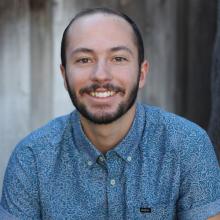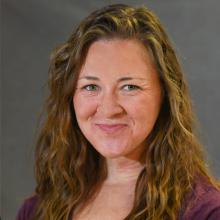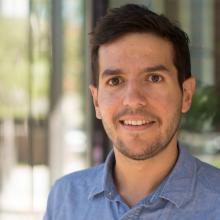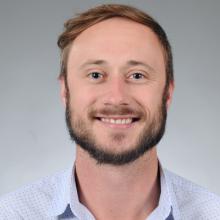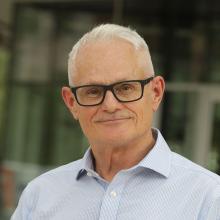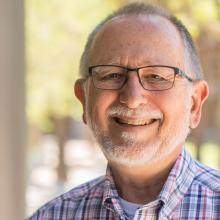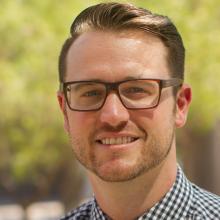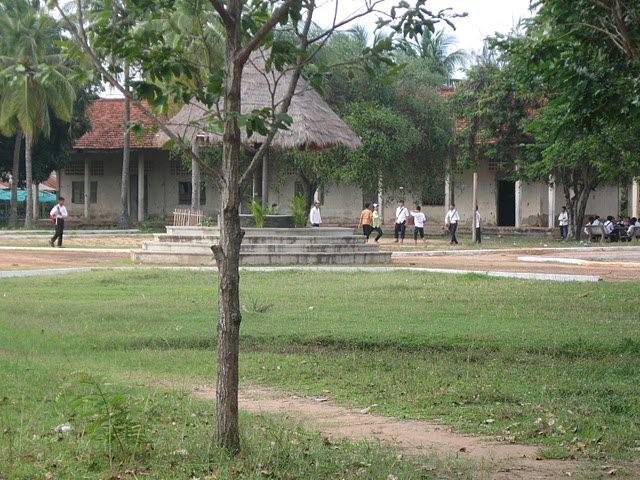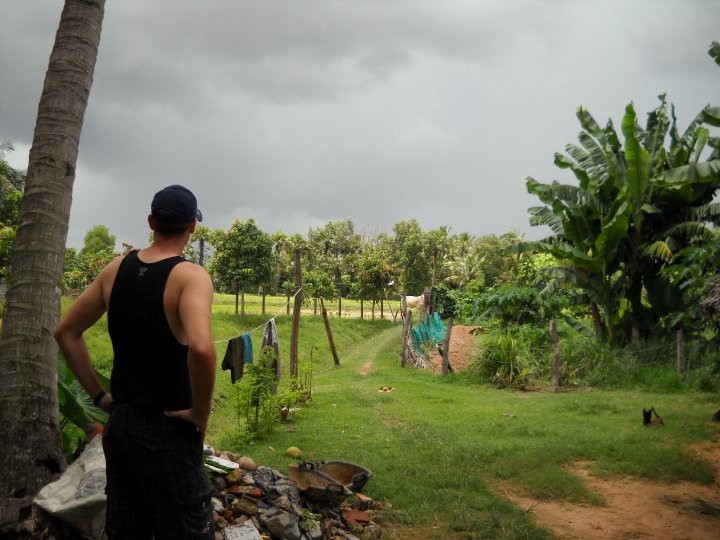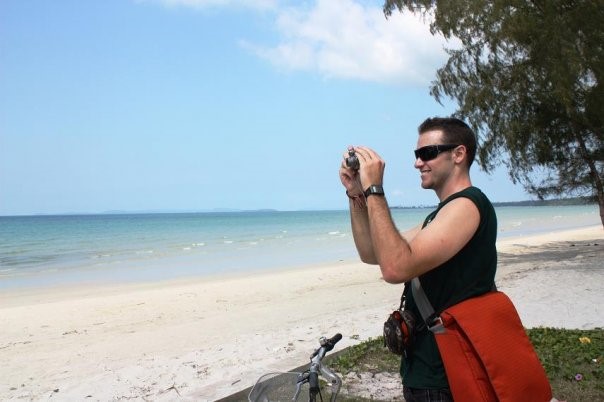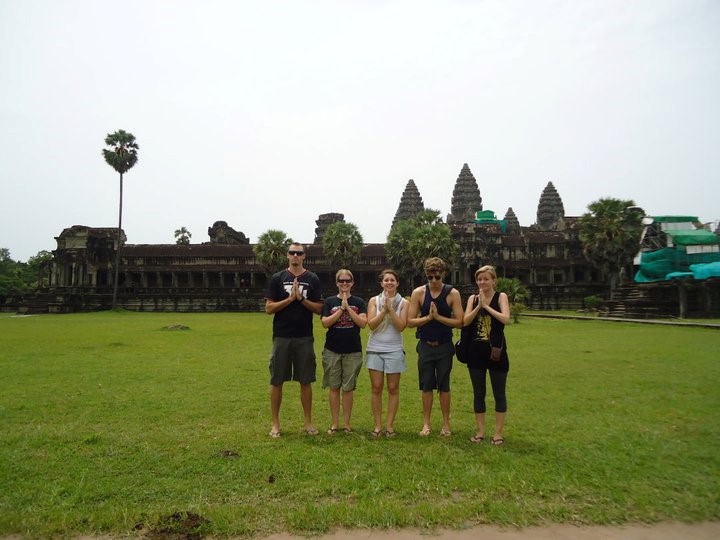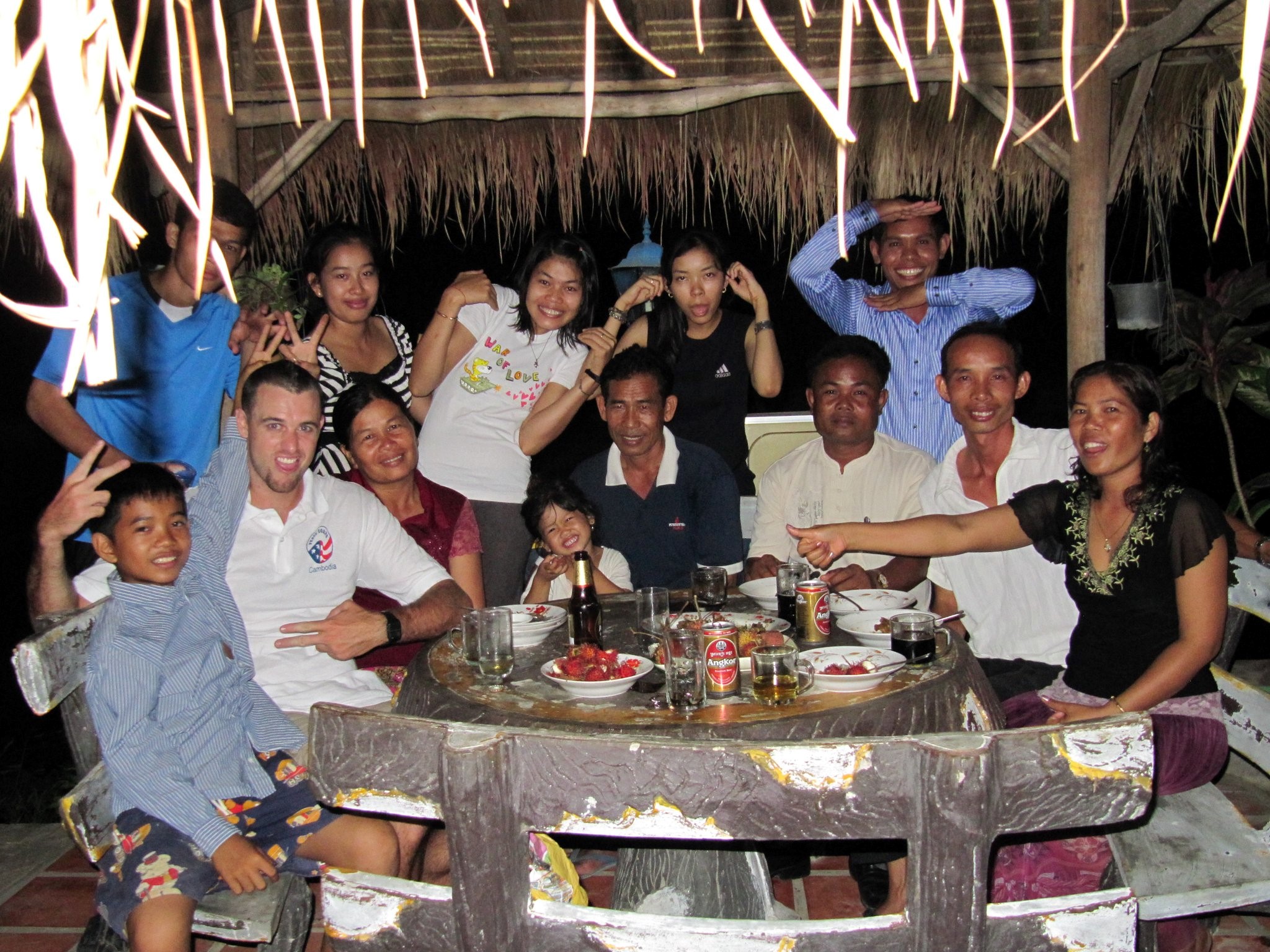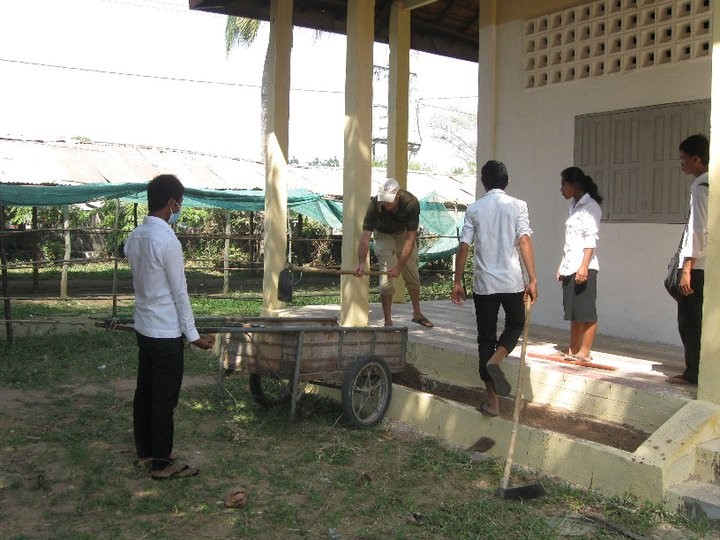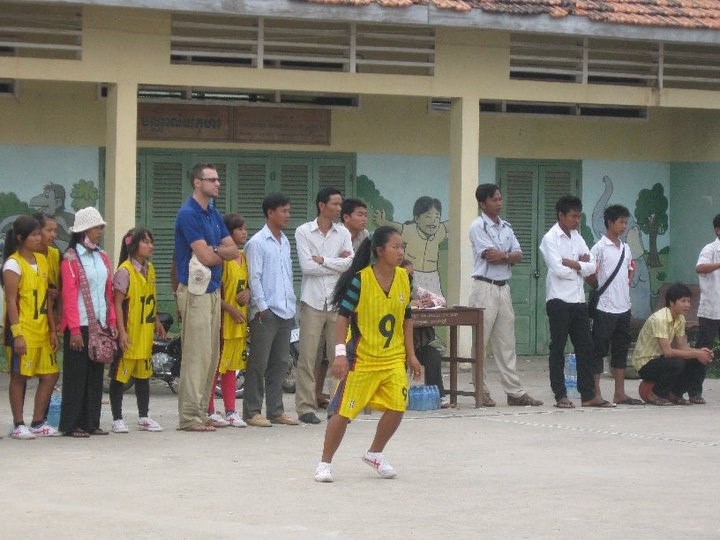Peace Corps Alumni
The AREC Master of Science program has welcomed many students in our 80+ years history, specifically, the Department has seen many returned Peace Corps volunteers (RPCV). The mapping of RPCVs is a project started by Ryan Young, an AREC MS student who graduated in May 2019. With Ryan's lead work and assistance from senior web designer/developer Troy Dean, the project has reached its finishing line and can be seen from the link below. Users can view from a map, where AREC MS alumni and RPCVs have been and any information they have provided about their experience. Check out the map and see where our students have been prior to joining our master's degree program. For more information on the Peace Corps Coverdell Program visit https://grad.arizona.edu/peacecorps.
View AREC MS graduate program details
The Dept thanks Ryan and Troy for their hard work on this long awaited project!
In the above map, you can see some locales around the world where AREC faculty and students have served. Click on the individual map markers to see more information about the individual's Peace Corps experience, information and photos shared by the Peace Corps member.
Brennan Bowman
Business Advising, Agriculture
2018-2020
Lisa Citron
Morocco
Steve Cole
Zambia
Health and Nutrition
1998-2002
How did the AREC program connect your service and help you prepare for your professional experiences?
The AREC program allowed me to develop my thesis based on the learning I gained as a PCV, in particular, some of the causes of child malnutrition and household food insecurity in rural Zambia. Through my training by the AREC program, I was able develop a sound methodology to explore these issues using a large World Bank data set. The experience analyzing the data and writing up and defending my thesis prepared me for my PhD and was fundamental in enabling me to develop survey instruments and analysis strategy for my dissertation research on the causes and consequences of economic inequality in rural Zambia.
Why would you recommend that an RPCV join our M.S. program?
The AREC program provides an enabling environment for students to pursue the research focus they bring to the program after their services as a PCV in the US Peace Corps.
Additional Comments
Amazing training provided by the AREC program, especially the applied focus that enables graduates to enter into the job market with a high skill level to make an immediate impact.
Roger Coupal
Guatemala
Forestry
1979-1981
How did the AREC program connect your service and help you prepare for your professional experiences?
I came back to school because throughout the last years of my undergraduate program and my two years in the Peace Corps I kept confronting both the role that markets and economic value of natural resources play in decision making and how the role that communities play building resource based developments. It became very apparent to me that communities are a group of people that on a daily basis make collective decisions amongst each other and outside their community, that may be competitive or market based in nature, or be jointly or cooperatively based decisions.Allocation of resources within a community and within that relevant functional space of a community, which can include areas and resource bases outside of city limits, can be different depending upon how decisions are made. Understanding the institutional structures that guide those decisions are vital to understanding how they use, allocate, and value resources.
Why would you recommend that an RPCV join our M.S. program?
I would recommend an RPCV join the MS-AREC program? It gives someone a strong background in applied economics that can be relevant to community issues
Theresa Duffy
Republic of Paraguay
Beekeeping Volunteer
2010-2012
Jeff Garland
Guatemala
Andrew Lobo
Dominican Republic
Community Economic Development Volunteer
2013-2015
Chuck Lyon
Dominican Republic
Agricultural Development
1984-1986
How did the AREC program connect your service and help you prepare for your professional experiences?
The AREC program enabled me to place a rigorous framework around what I had observed as a PCV working with campesinos in The DR. Why, for example, would marginalized farmers in the mountains of the The DR plant the same two or three crops year after year as opposed to practicing more sustainable (and potentially more financially rewarding) forms of agriculture? After my MS degree, I obtained a PhD in Ag Econ at Minnesota and then went to work for American Express. The fundamentals of economic theory, public policy, development economics, and econometrics that I learned in my AREC program informed my PhD experience as well as my 25 year career at Amex. Economics became a convenient and fairly robust way to interpret the complexities of human behavior in our world.
Why would you recommend that an RPCV join our M.S. program?
The student would gain an excellent understanding of the basic tenants of Applied Economics as well as extremely valuable applied skills and be prepared to follow either a career in academia, government, or private industry.
Joseph Navelski
Nicaragua
Agriculture and Food Security
2012-2014
How did the AREC program connect your service and help you prepare for your professional experiences?
The program’s applied economic curriculum was great at facilitating my research interests in Economic Development because it gave me the analytical tools to investigate the development questions that surfaced during my Peace Corps Service. Furthermore, many of the program’s faculty members have experience in conducting economic development research or have experience working in the field as RPCVs, and because of this, I found it easy to discuss and ask questions in a conducive and relatable academic environment. Acquiring the analytical tools needed to conduct economic research helped me obtain a professional position as a Research Economist Intern for USDA’s Economic Research Services, and the supportive academic environment has enabled me to reach my goal of being accepted as a PhD Candidate
Why would you recommend that an RPCV join our M.S. program?
The MS-AREC Program is highly supportive of the diverse academic, professional, and personal backgrounds of each student that is accepted into the program. This atmosphere allows you to grow as a researcher and/or professional in the field that you are interested in working in.
Katherine Pittenger
Ghana
2001-2003
Linda Scheu
Honduras
Agriculture
1996-1998, 1999
Kraig Schulz
Mali
Agriculture
1993-1996
How did the AREC program connect your service and help you prepare for your professional experiences?
It is a great program for practical problem-solving. I focused on the statistical aspects of the program with the Administration's support and turned that into a career I had no idea I would ever have in consulting to many of the largest and most successful companies in the world. While I pursued a more mainstream career I always felt connected to the agricultural sector through my PCV experience that was reinforced through AREC. I ultimately ended up in the ag sector and think of my many experiences in both the Peace Corps and AREC often. I am indebted to the U of A and AREC for where I am today and hope to repay their investment in me whenever I can.
Why would you recommend that an RPCV join our M.S. program?
It is a great transition for RPCVs back to the U.S. and really helps to connect your experience with humans and natural resources to real-world problem-solving that companies will pay for. I felt like it was a natural stepping stone and am lucky to have been a part of a great program.
Elizabeth Schuster
Honduras
Rural Development, Watershed Reforestation
2000-2004
How did the AREC program connect your service and help you prepare for your professional experiences?
For my Peace Corps assignment, I was assigned to lead watershed reforestation efforts in a small village in buffer zone of a cloud forest. However, farmers were more focused on sustaining their livelihoods than on planting trees. We found that by achieving organic certification for the farmers’ coffee, they were incentivized to plant trees as part of the organic certification – and it led to an increase in household income. I loved the idea of finding these win-wins to solving complex societal problems around environmental conservation, poverty reduction and other socioeconomic issues. AREC prepared me with a solid foundation and training in applied economics, providing with me a rigorous framework for evaluating problems and coming up with solutions in my current position as environmental economist with The Nature Conservancy.
Why would you recommend that an RPCV join our M.S. program?
My general feeling is that starting with a more specialized field – like economics – prepares you better as you move forward in your career. Later in your career, you can become a generalist but start specific, which gives you a tool box of methods and approaches to rigorously assess and solve problems. Further, economics is fundamentally about understanding behavior and predicting behavior change, which is a practical foundation for any future positions you might obtain.
Terry Sprouse
Honduras
Education & Agriculture
1985-1988
How did the AREC program connect your service and help you prepare for your professional experiences?
AREC MS prepared me, particularly through my research in Mexico, to do work in Latin America, and then pursue my PhD in Arid Lands Studies.
Why would you recommend that an RPCV join our M.S. program?
Peace Corps provides great opportunities for learning and experience.
Gary Thompson
Guatemala
Agricultural Development
1977-1980
How did the AREC program connect your service and help you prepare for your professional experiences?
Peace Corps work provides you first-hand experience in the problems people face in achieving their aspirations for a better life. At the same time, you learn how to become more self-reliant, self-directed, and persevering in achieving your own goals. Living and working in another place, another culture and language cannot help but change your view of the world, other peoples, and the natural environment.
Why would you recommend that an RPCV join our M.S. program?
As a Returned Peace Corps Volunteer at the University of Arizona, you will find a welcoming, supportive community of RPCVs. In the Department of Agricultural & Resource Economics, you will be able to study and master highly applicable skills, interact with interesting peers from around the world, and enhance your ability to continue serving in new ways while making a good living.
Matthew Westover
Lesotho
Rural Agriculture
1993-1995
How did the AREC program connect your service and help you prepare for your professional experiences?
The AREC program was a nice extension for me from my service as a rural agricultural volunteer, taking some of that practical work and applying it to larger scale problems. It was a great transition for me from Peace Corps life into a an environment where I could build on some of my peace corps experiences. I ultimately was exposed to new interests after finishing up at AREC, but I highly doubt I would have found them, nor would I have had the early skills I needed to succeed.
Why would you recommend that an RPCV join our M.S. program?
It's a great way to build on your Peace Corps experience and start to develop new skills that you can apply in a professional environment. You get exposed to great people and interesting topics and really work in an area that you are passionate about. Whether you ultimately end up continuing down your original path that you go down at AREC or go in an adjacent direction as I did, the skills and experiences you obtain at AREC are invaluable.
Additional Comments
It's a great program and really helped me to develop the career I have today. When I was at AREC, the internet was just getting started. We honed our data modeling and other "big data" skills using the largest data sets available at the time, agricultural ones. While I personally didn't continue down an agricultural or environmental econ path, the skills I obtained and software I was exposed to enabled me to apply my skills to other industries where I ultimately found more interest. Those turned out to be digital advertising and digital marketing - I do proudly tell folks I speak with about both my PC and AREC experiences and how they shaped me and my career for the better.
Paul Wilson
Dominican Republic, Costa Rica
Cooperative Development/Business Advisor and Accountant
1970-1972
How did the AREC program connect your service and help you prepare for your professional experiences?
The AREC program enabled me to acquire the writing, research, analytical and teaching skills to be offered jobs in the private, consulting, and public sectors. My wife and I chose to pursue the opportunity with the U.S. Agency for International Development where I served as a loan officer and a rural development officer in Washington, D.C. and Nicaragua. This overseas experience led us to pursue a Ph.D. after 2+ years of service.
Why would you recommend that an RPCV join our M.S. program?
Students will participate in a student-centered academic environment that prepares the student for analytical and managerial positions in the private and public sectors.
Ryan Young
Cambodia
English Teacher and Teacher Trainer
2009-2011
Why would you recommend that an RPCV join our M.S. program?
The MS-AREC Program is highly supportive of the diverse academic, professional, and personal backgrounds of each student that is accepted into the program. This atmosphere allows you to grow as a researcher and/or professional in the field that you are interested in working in.


